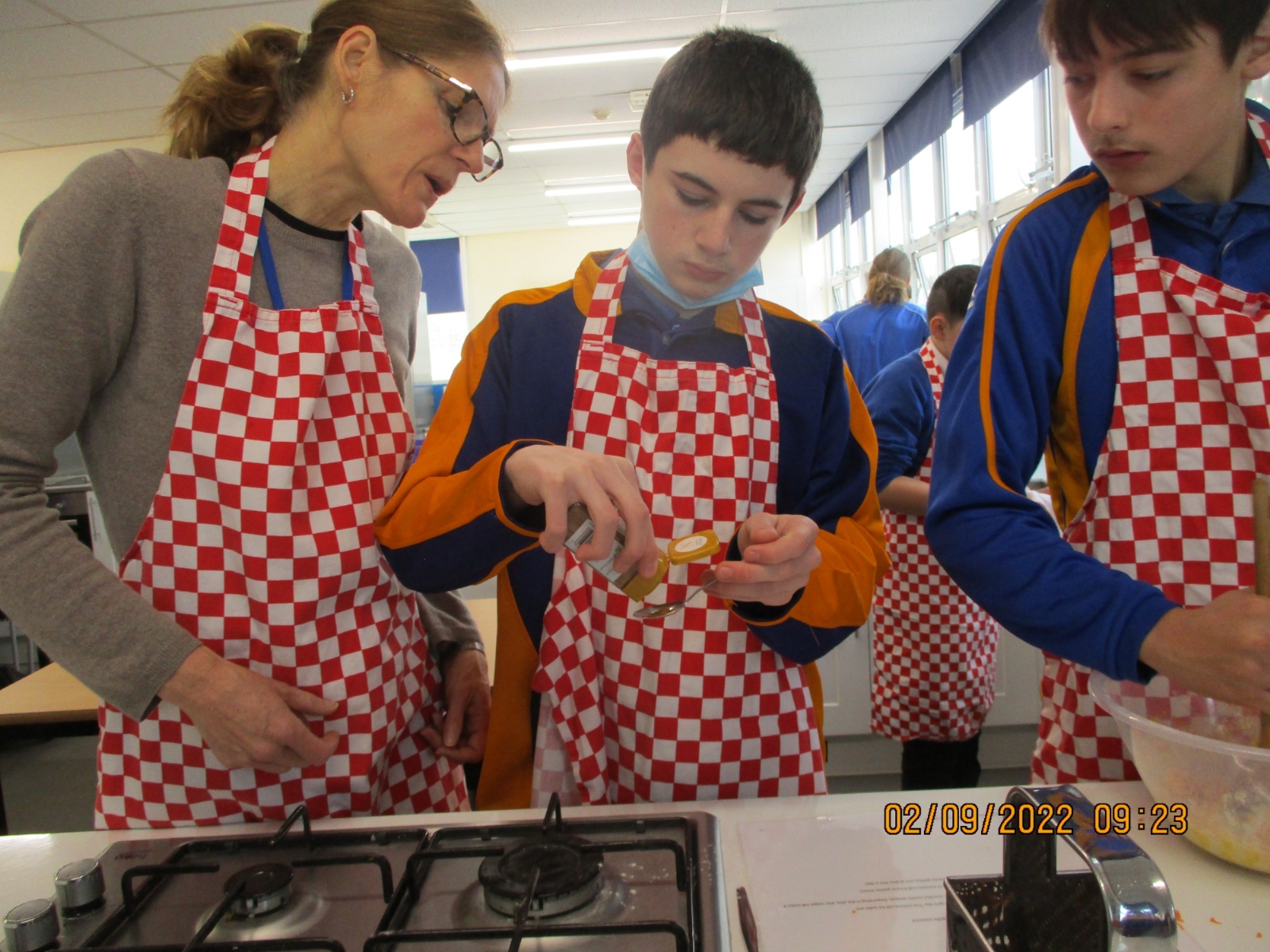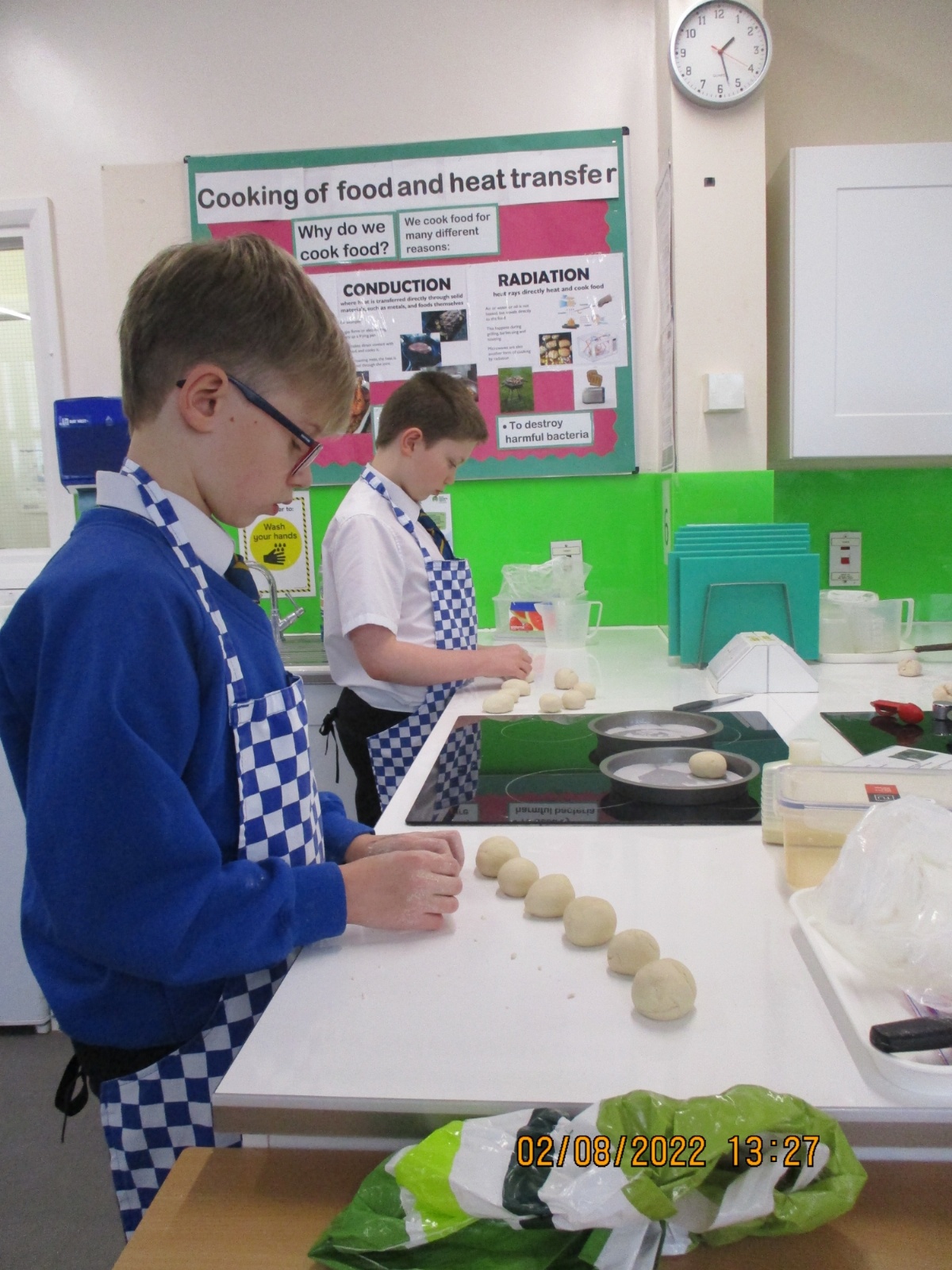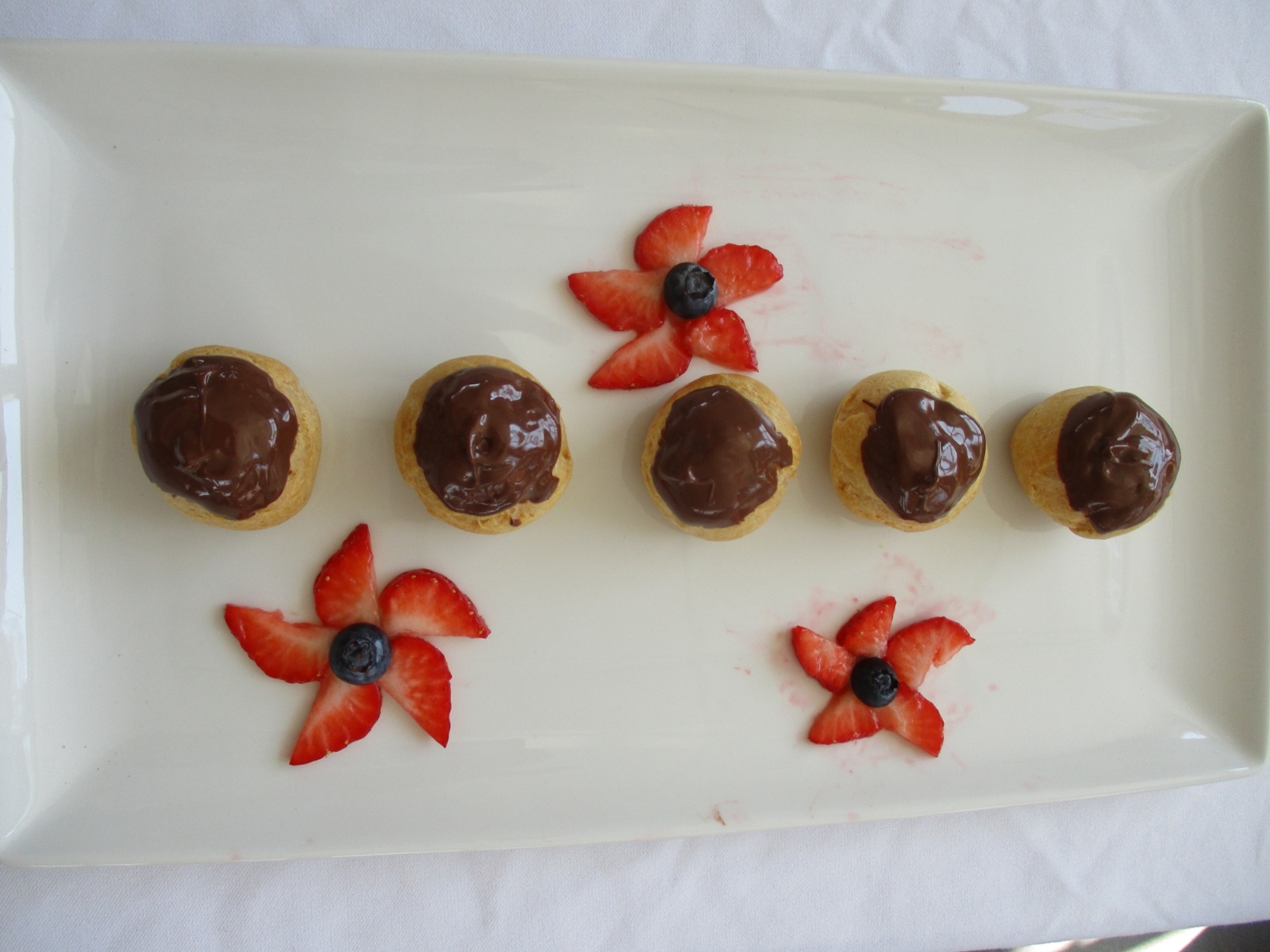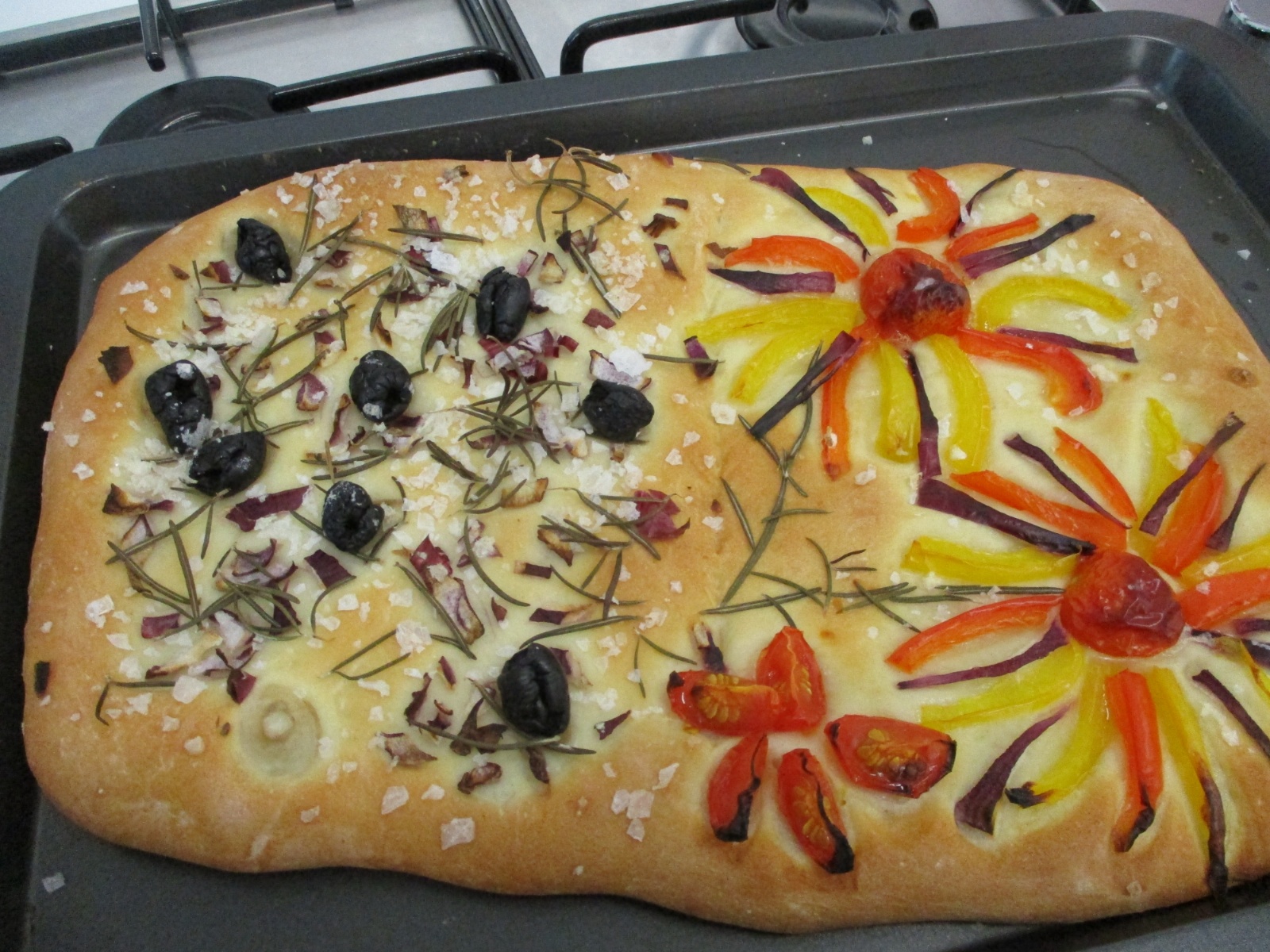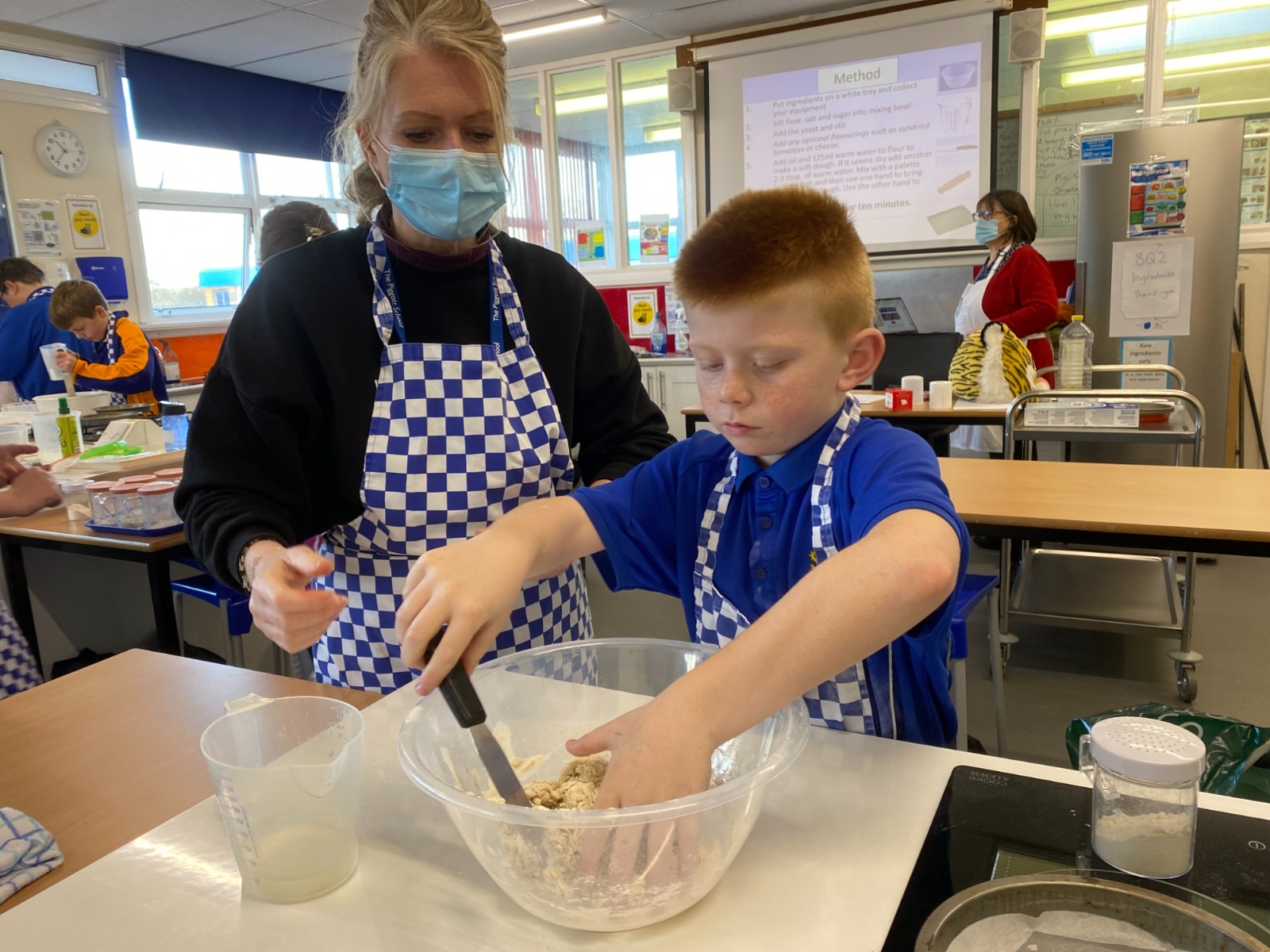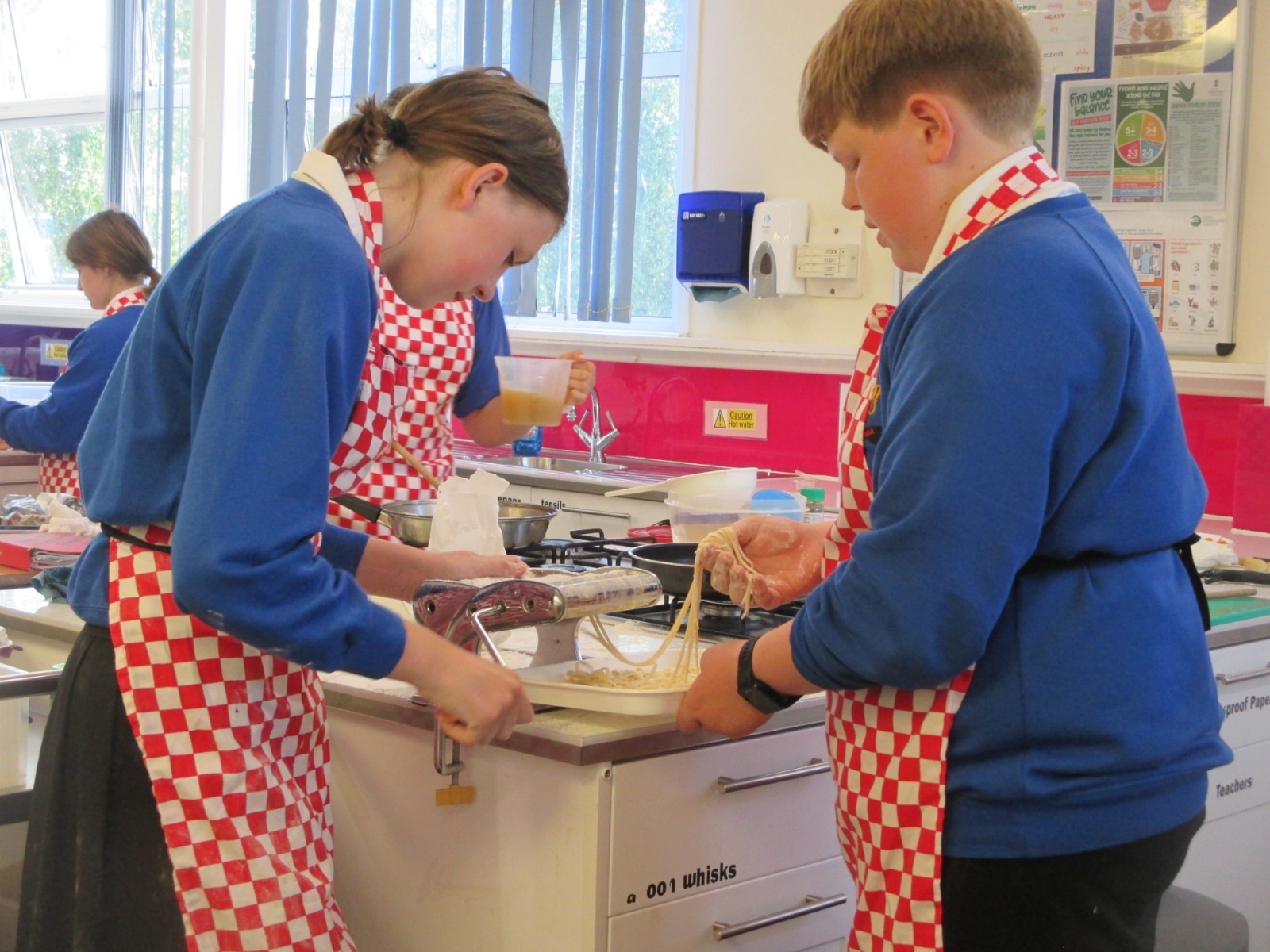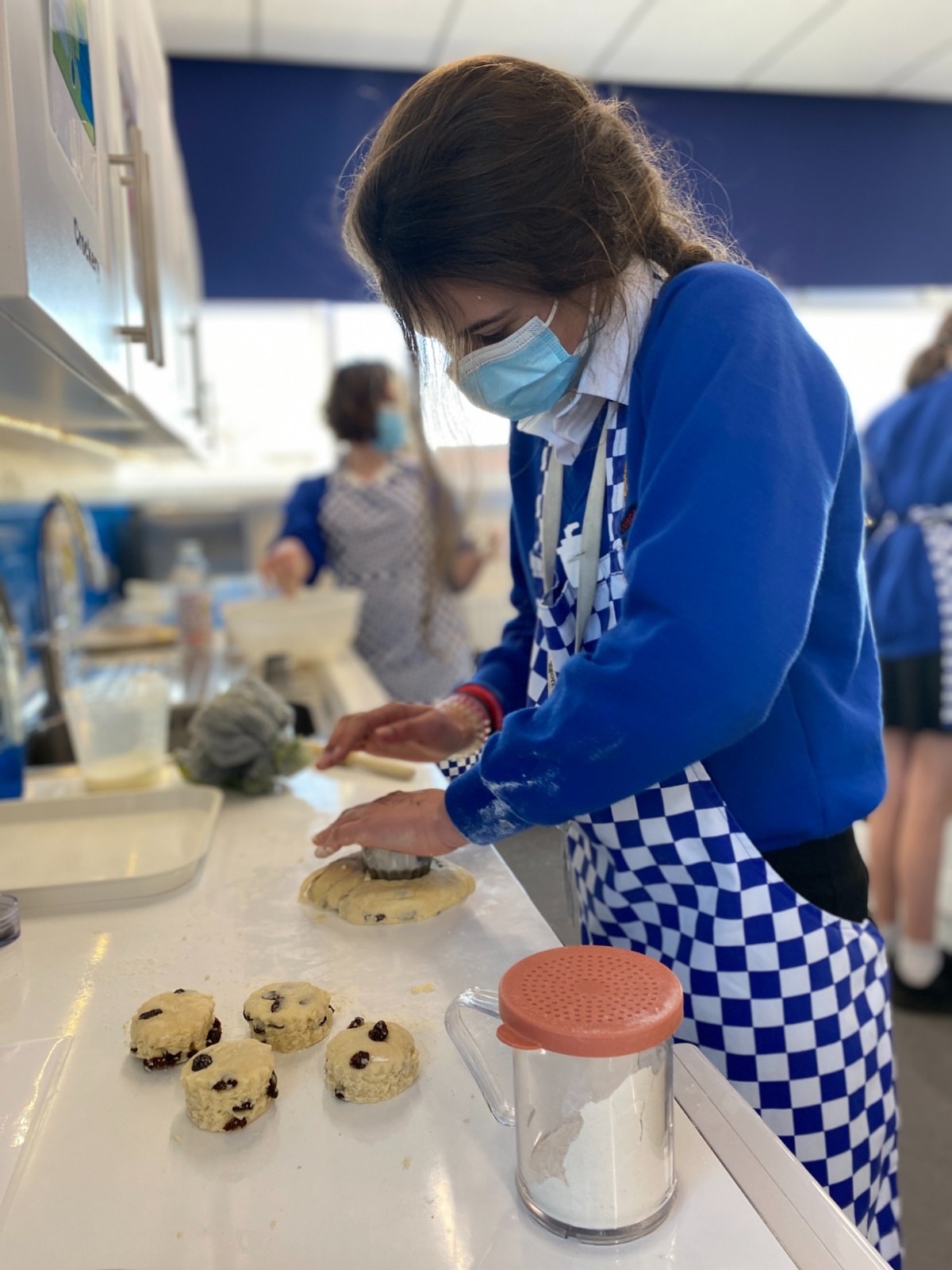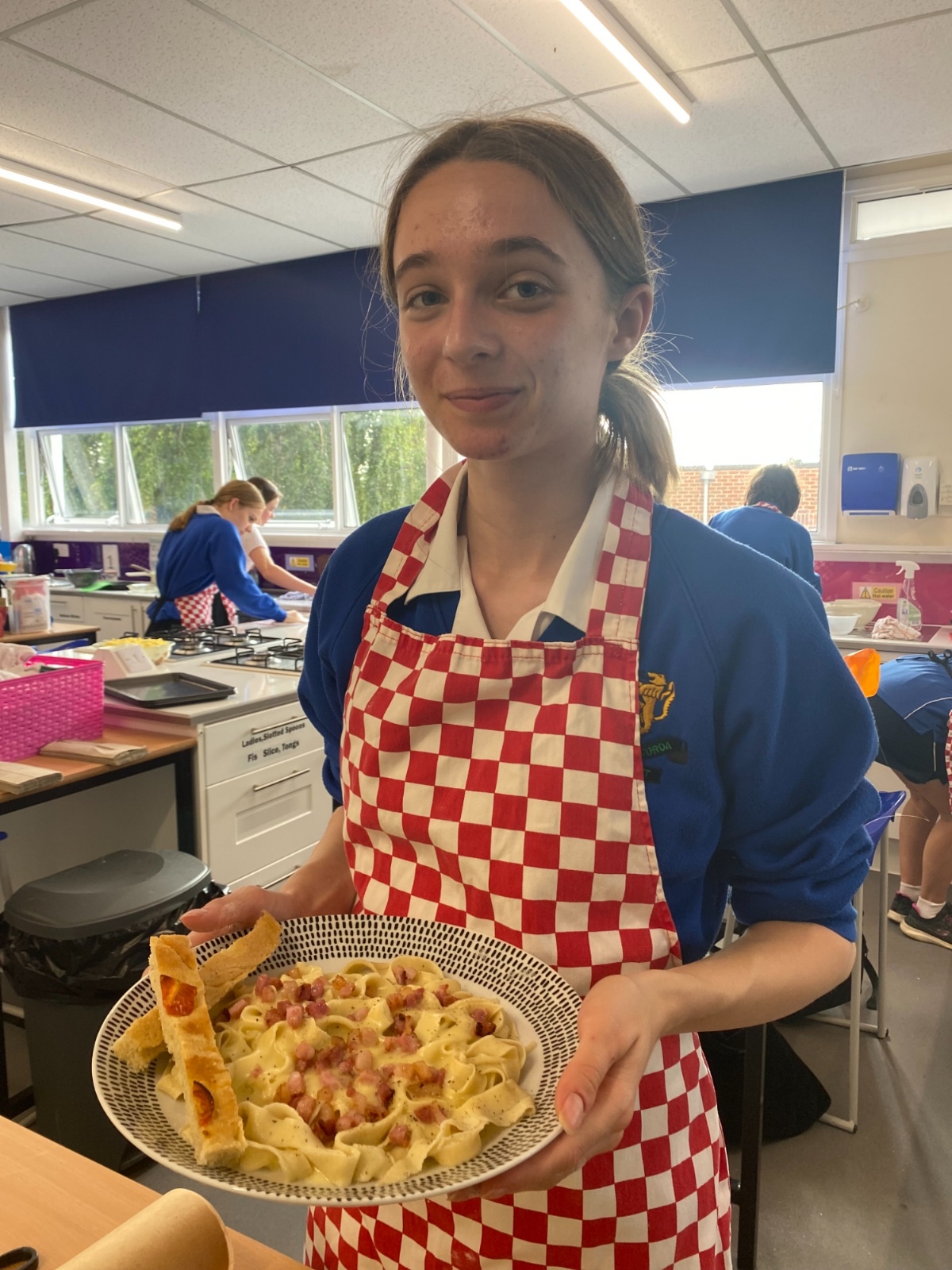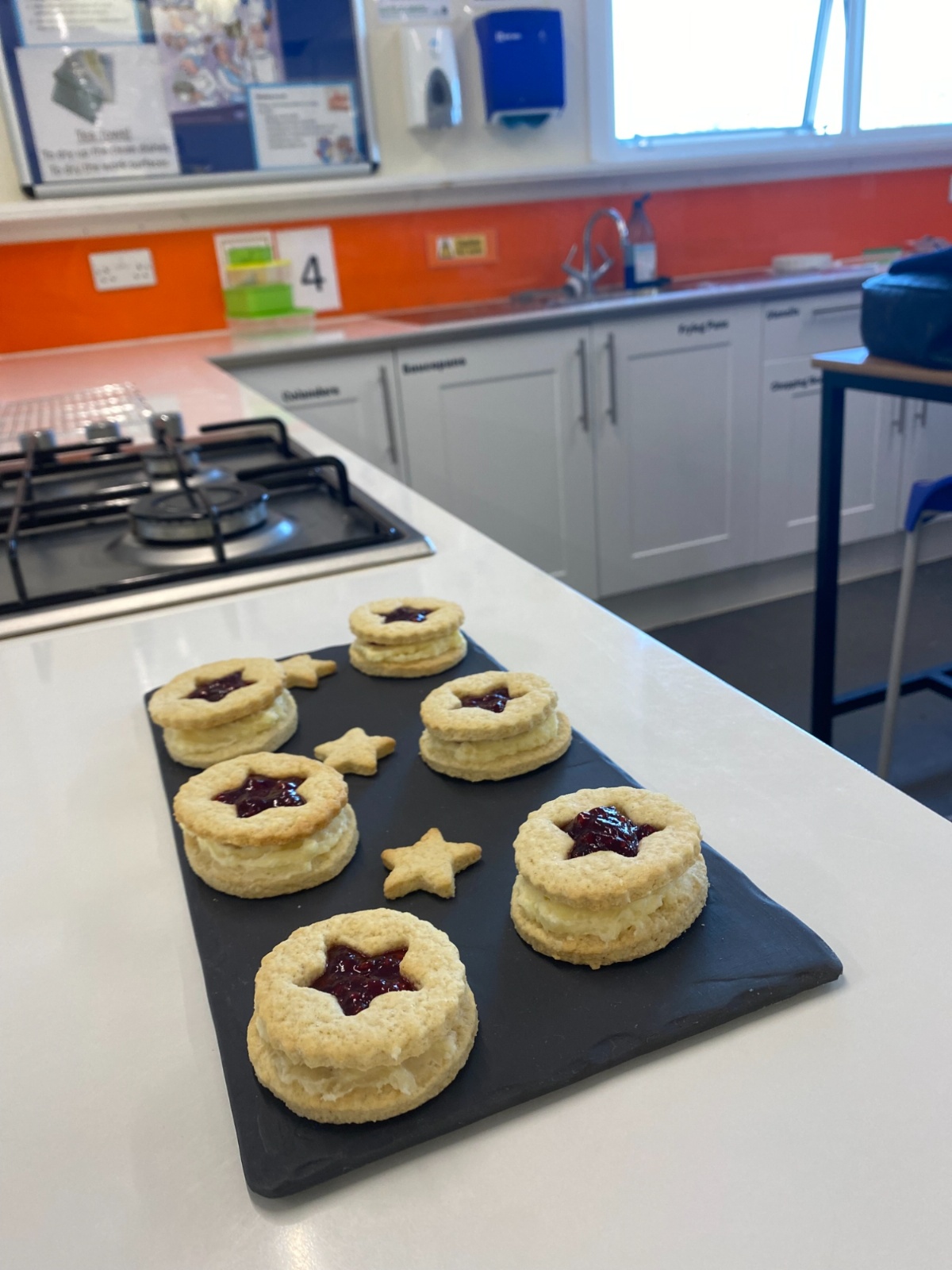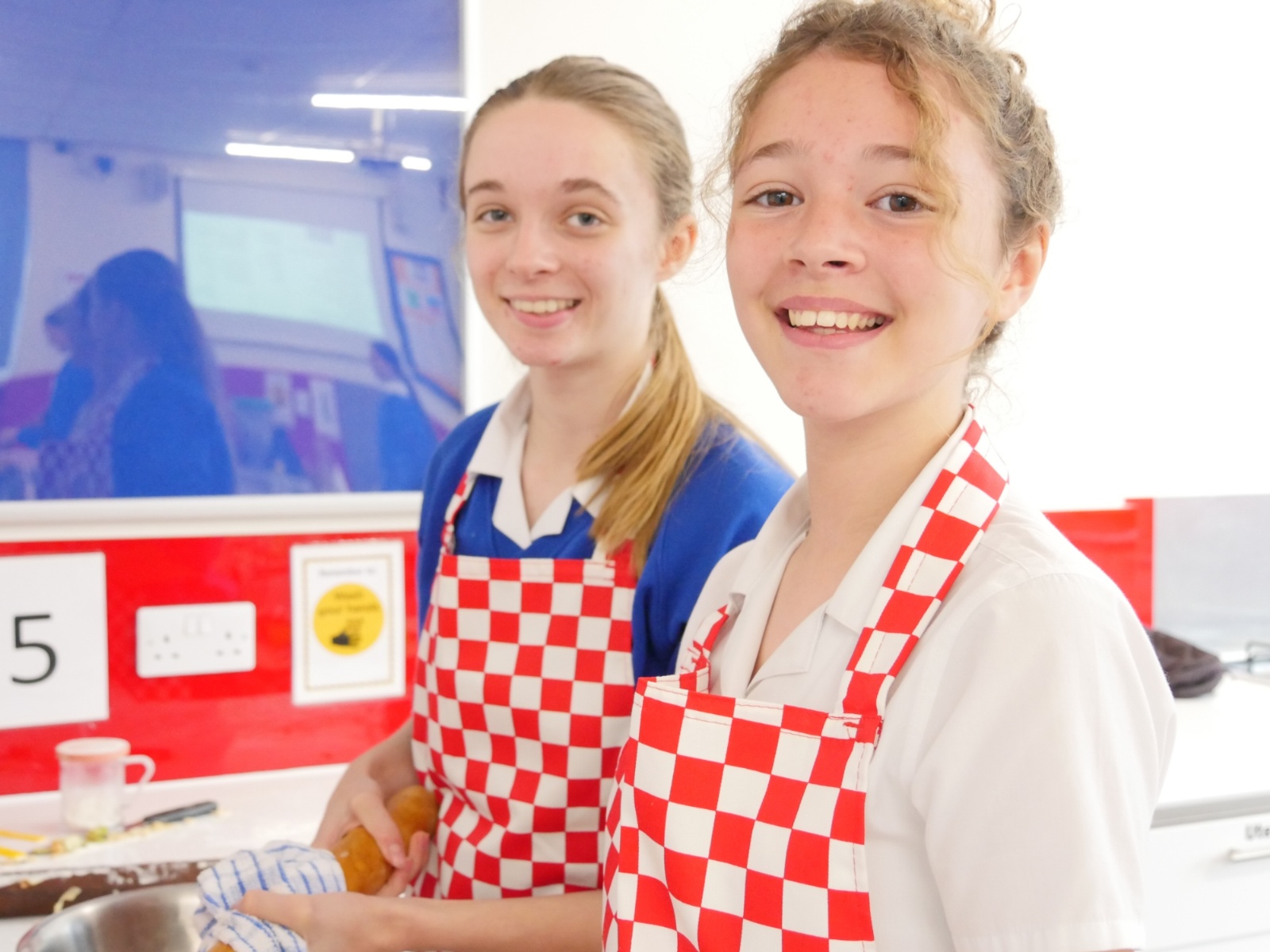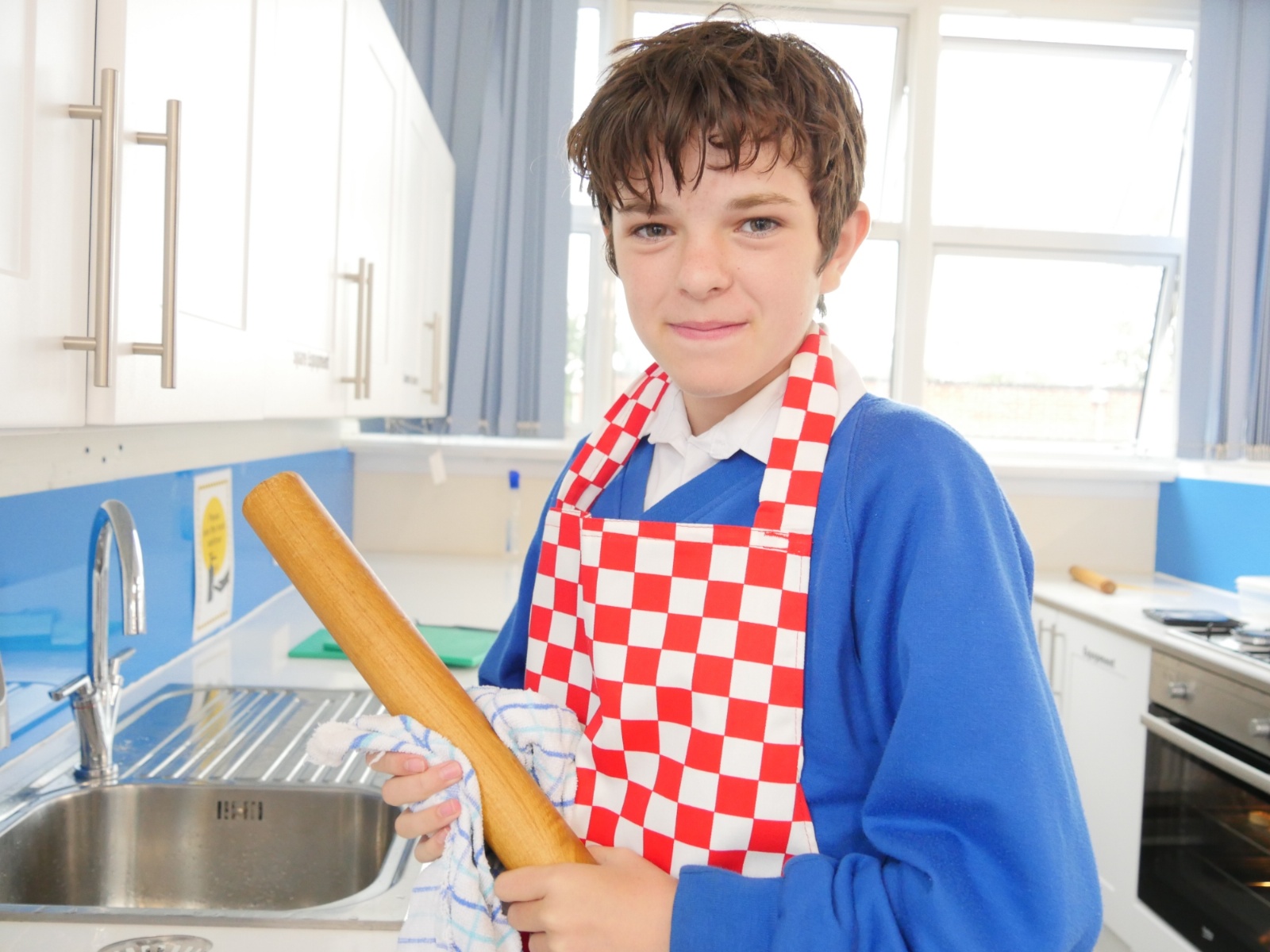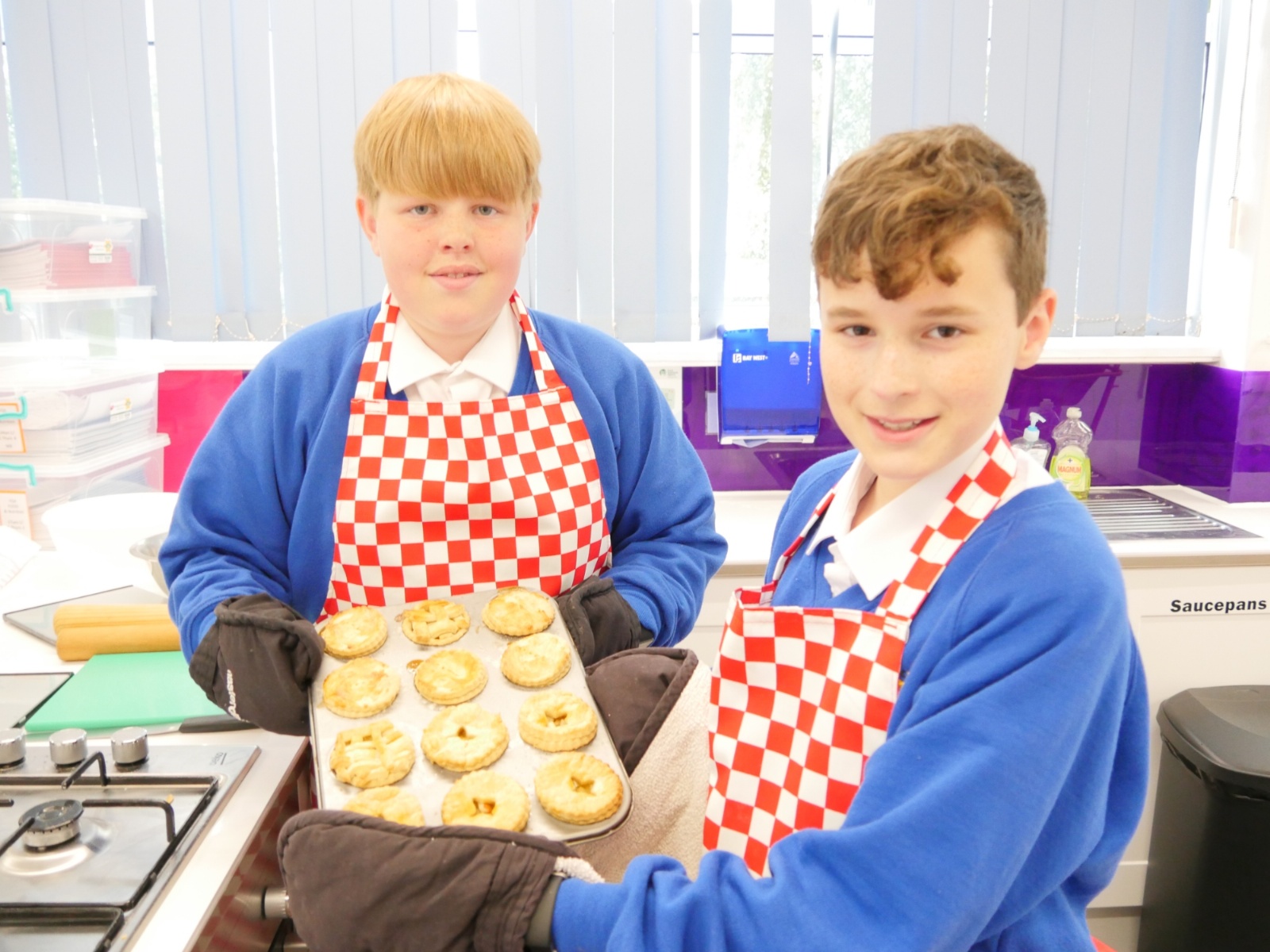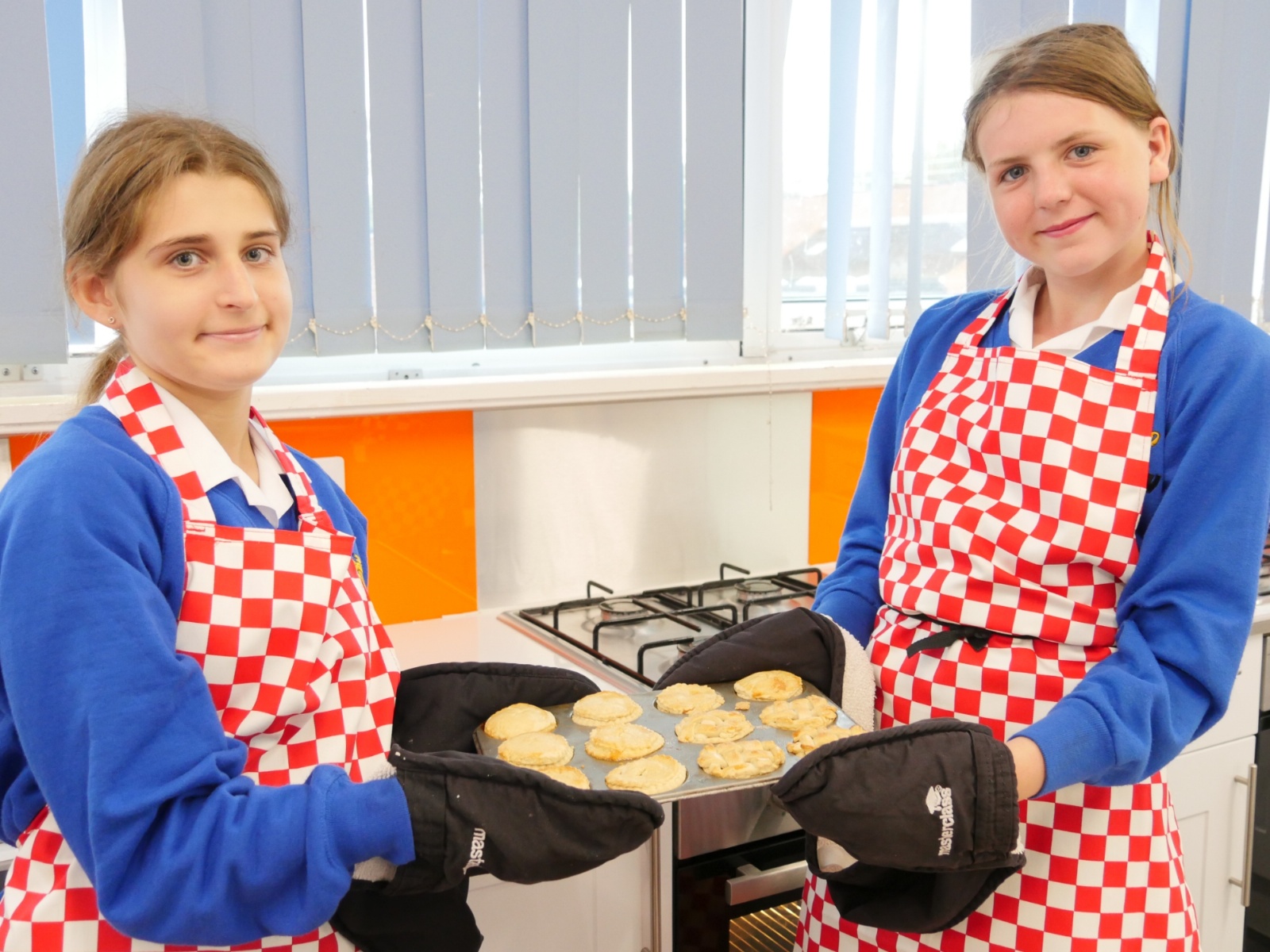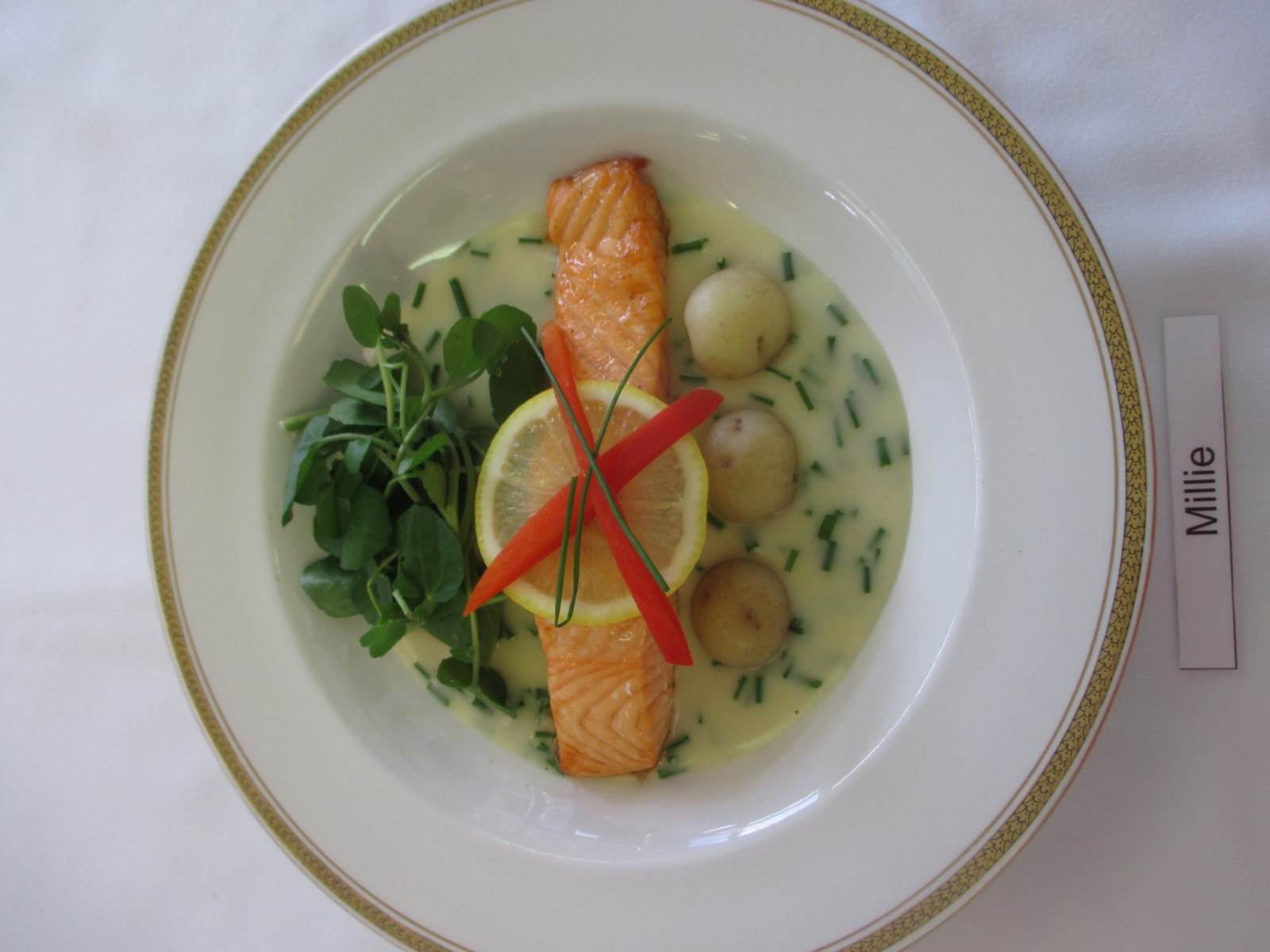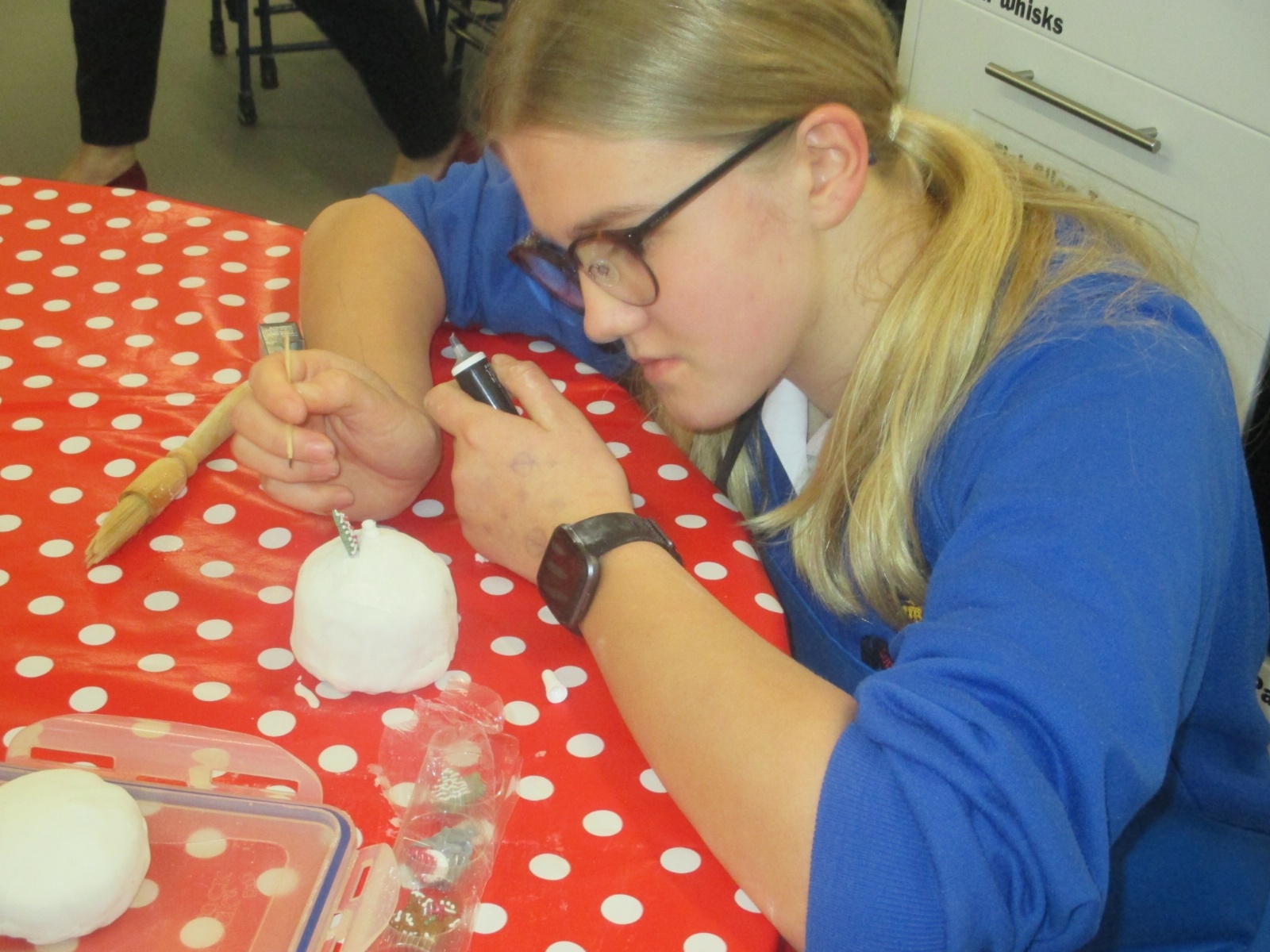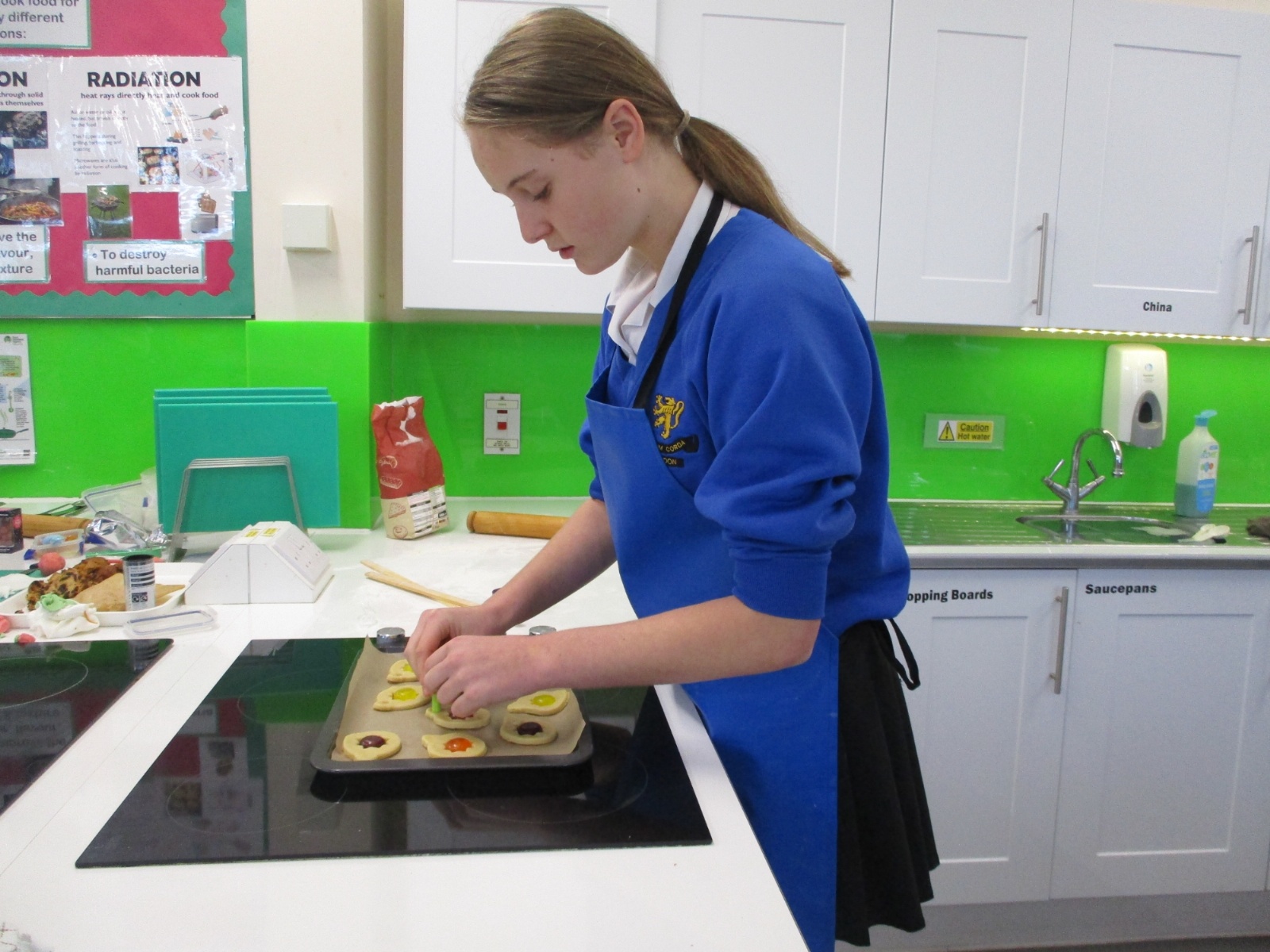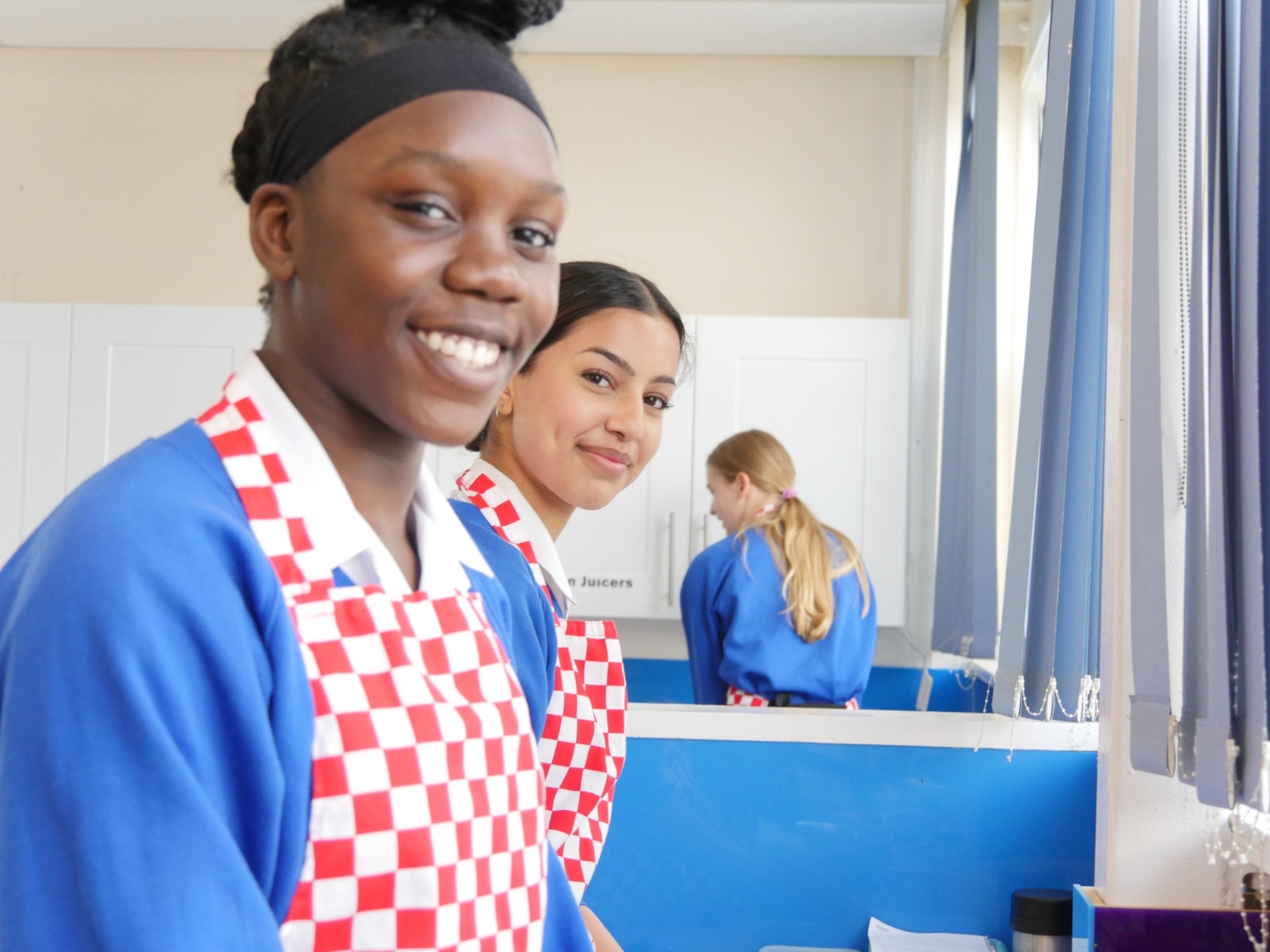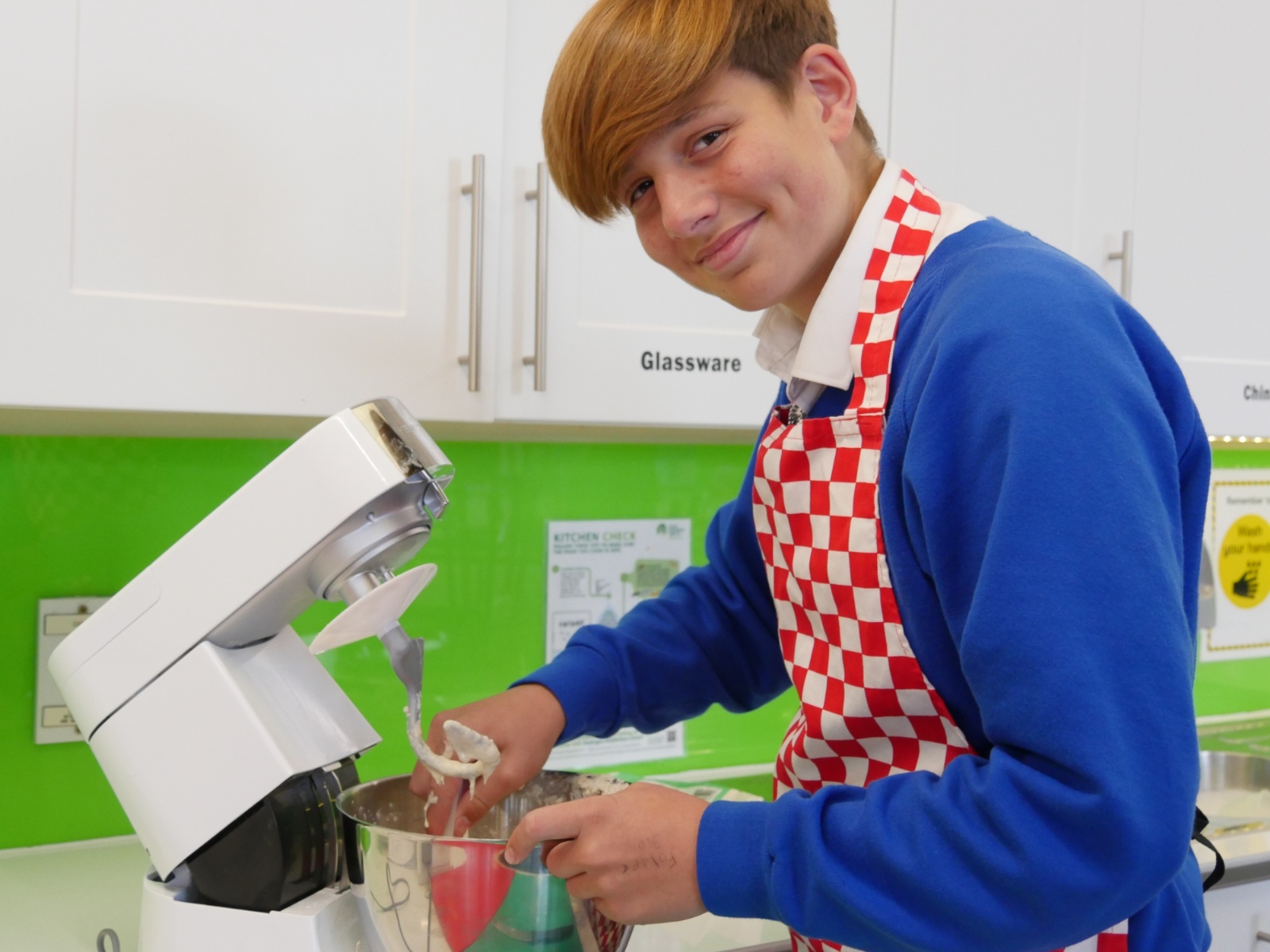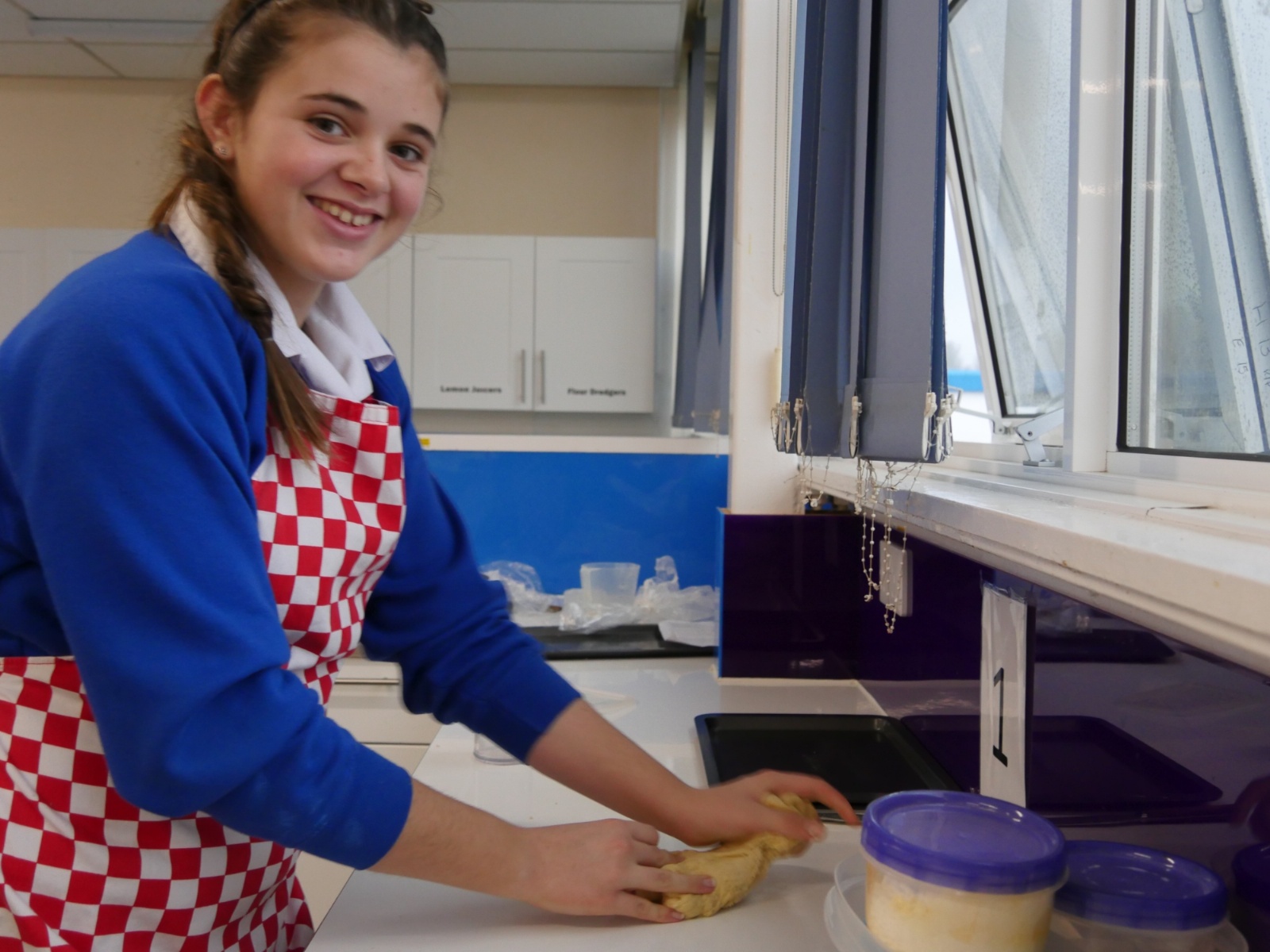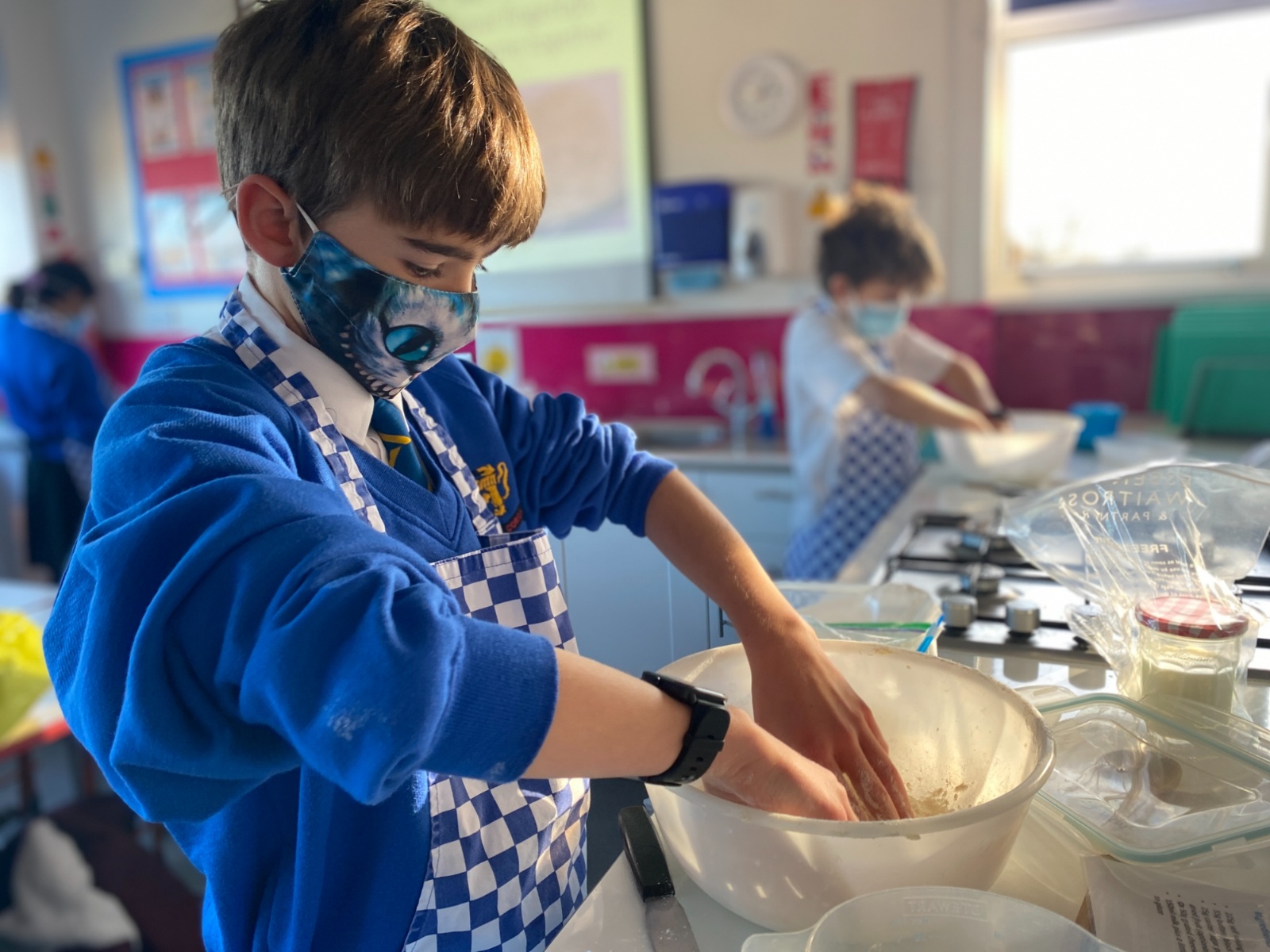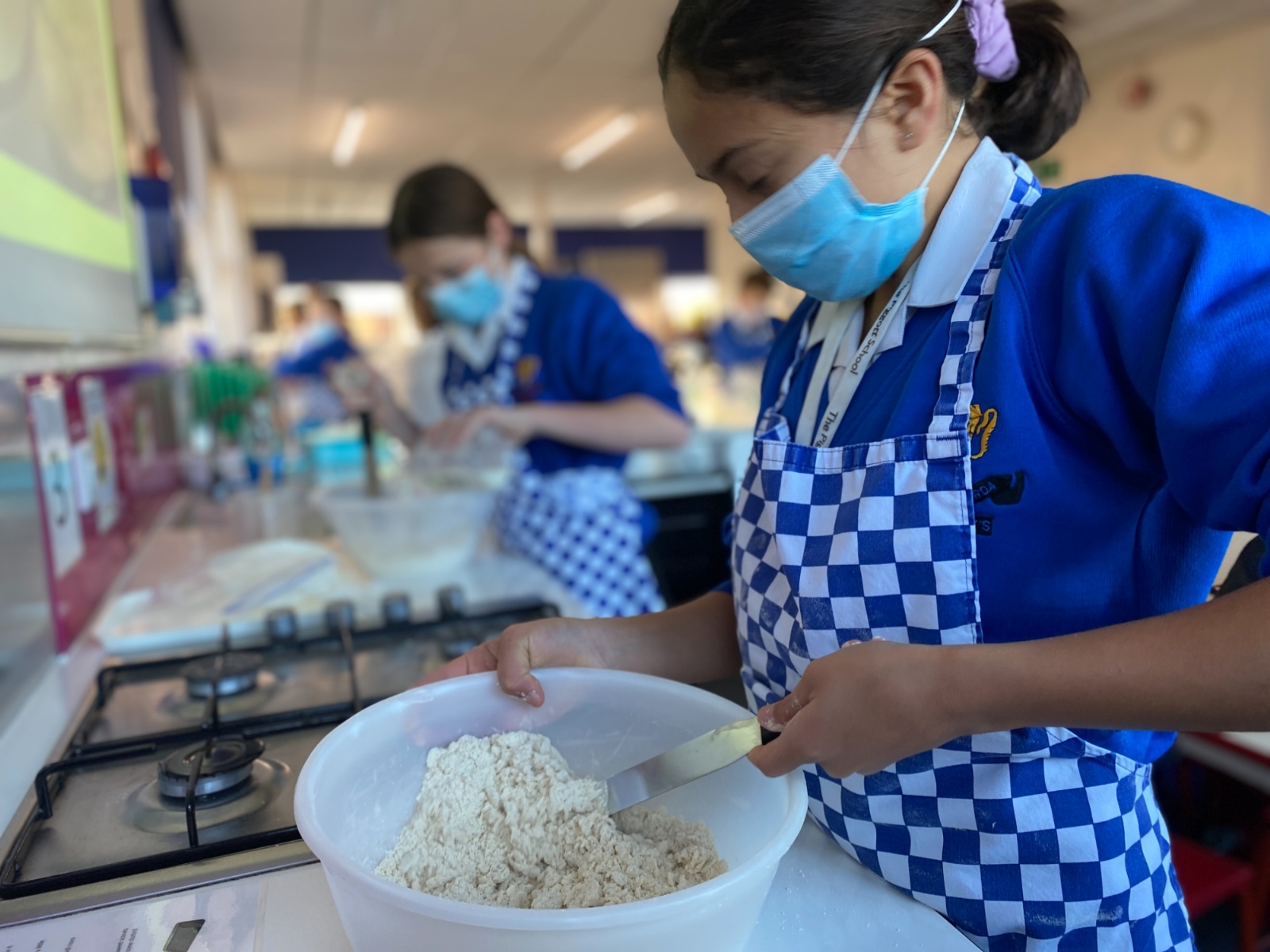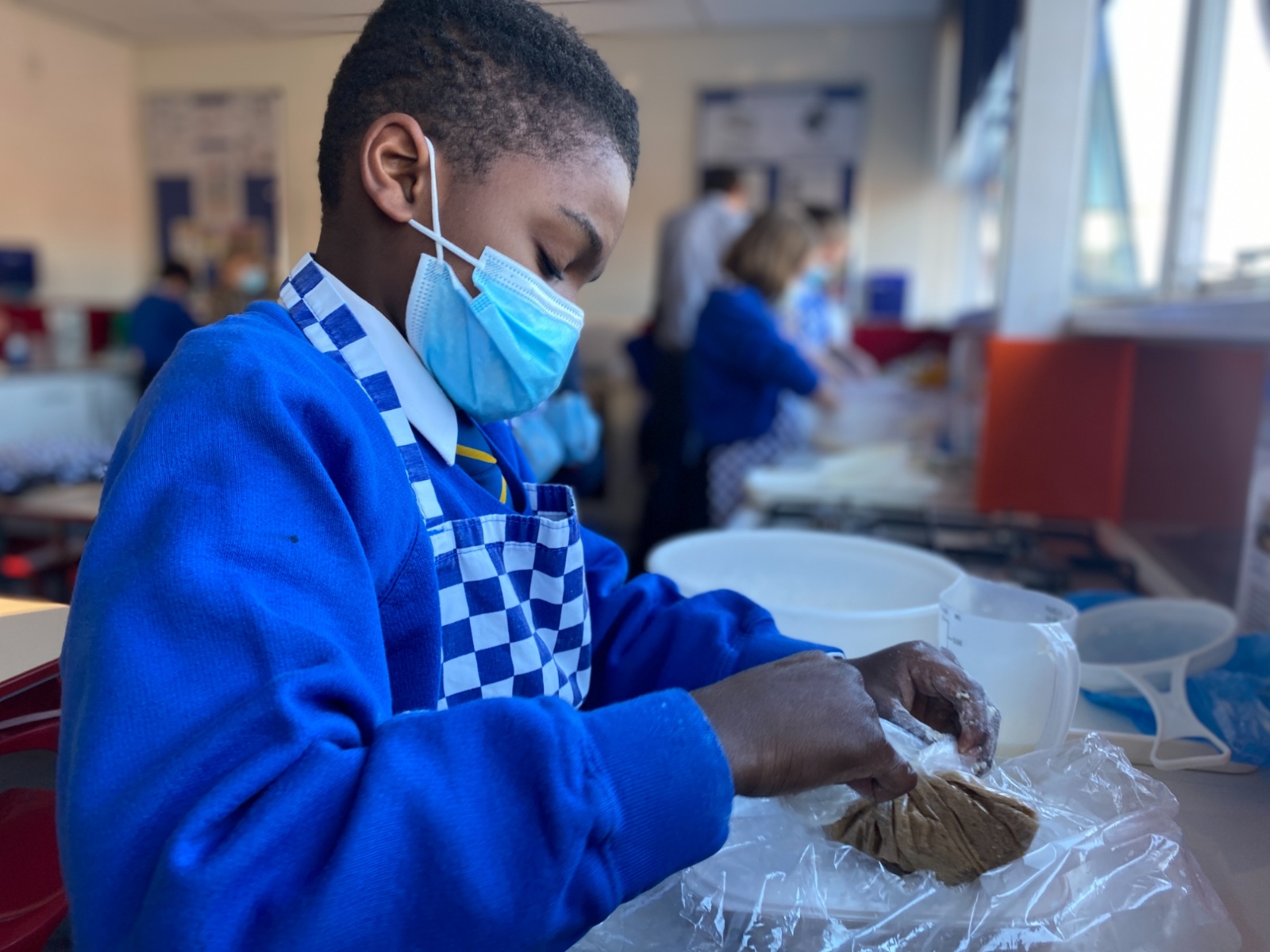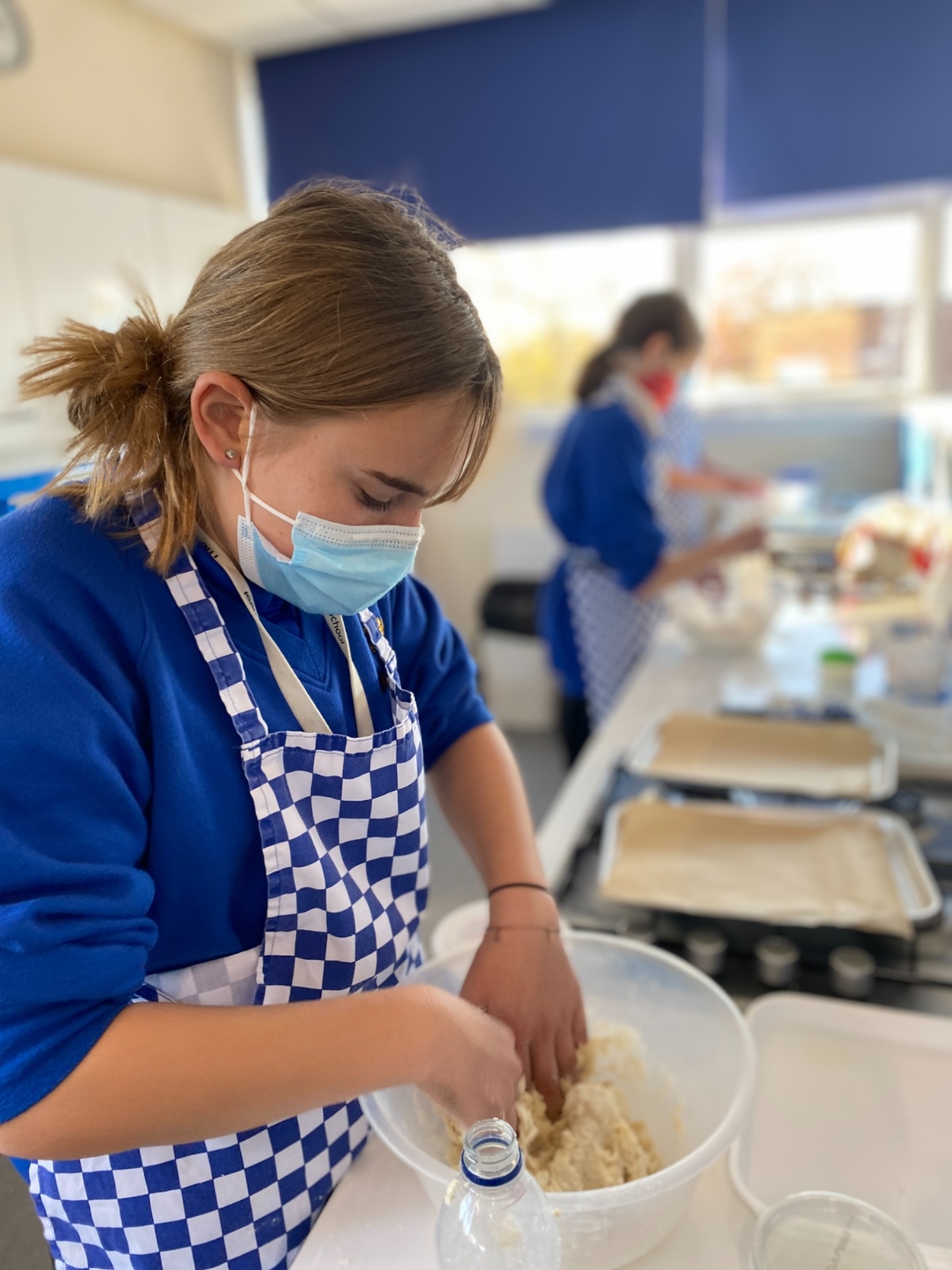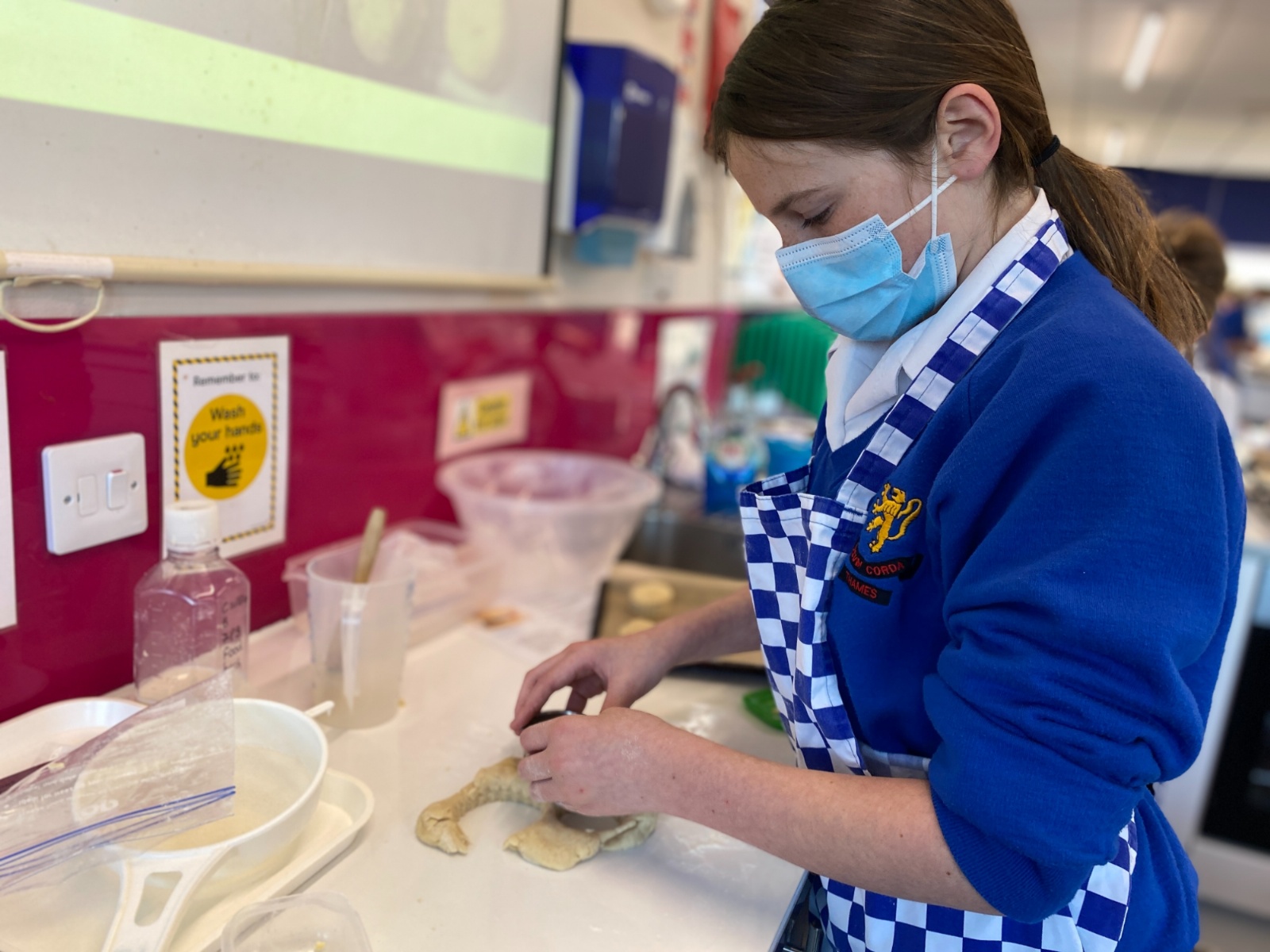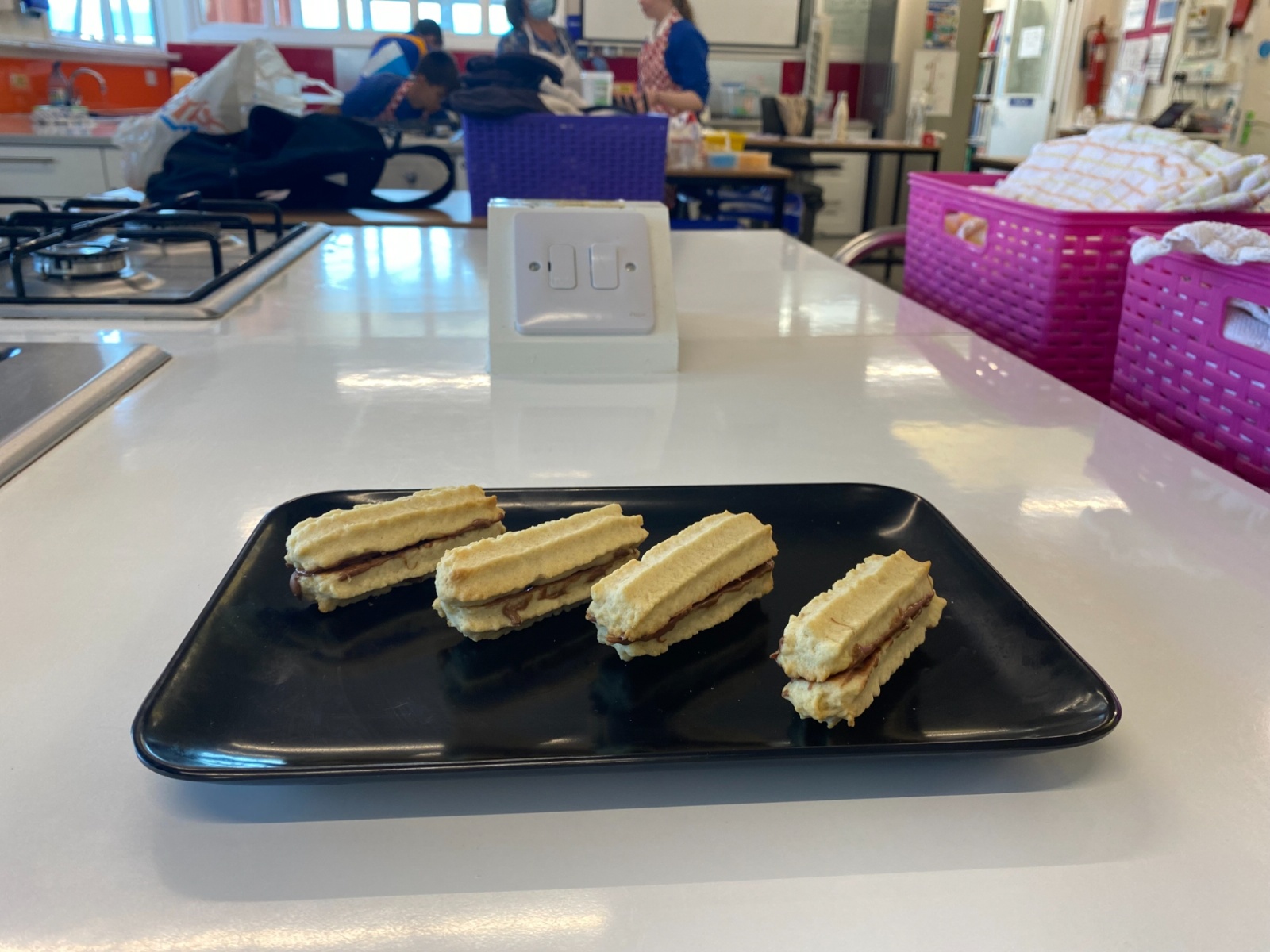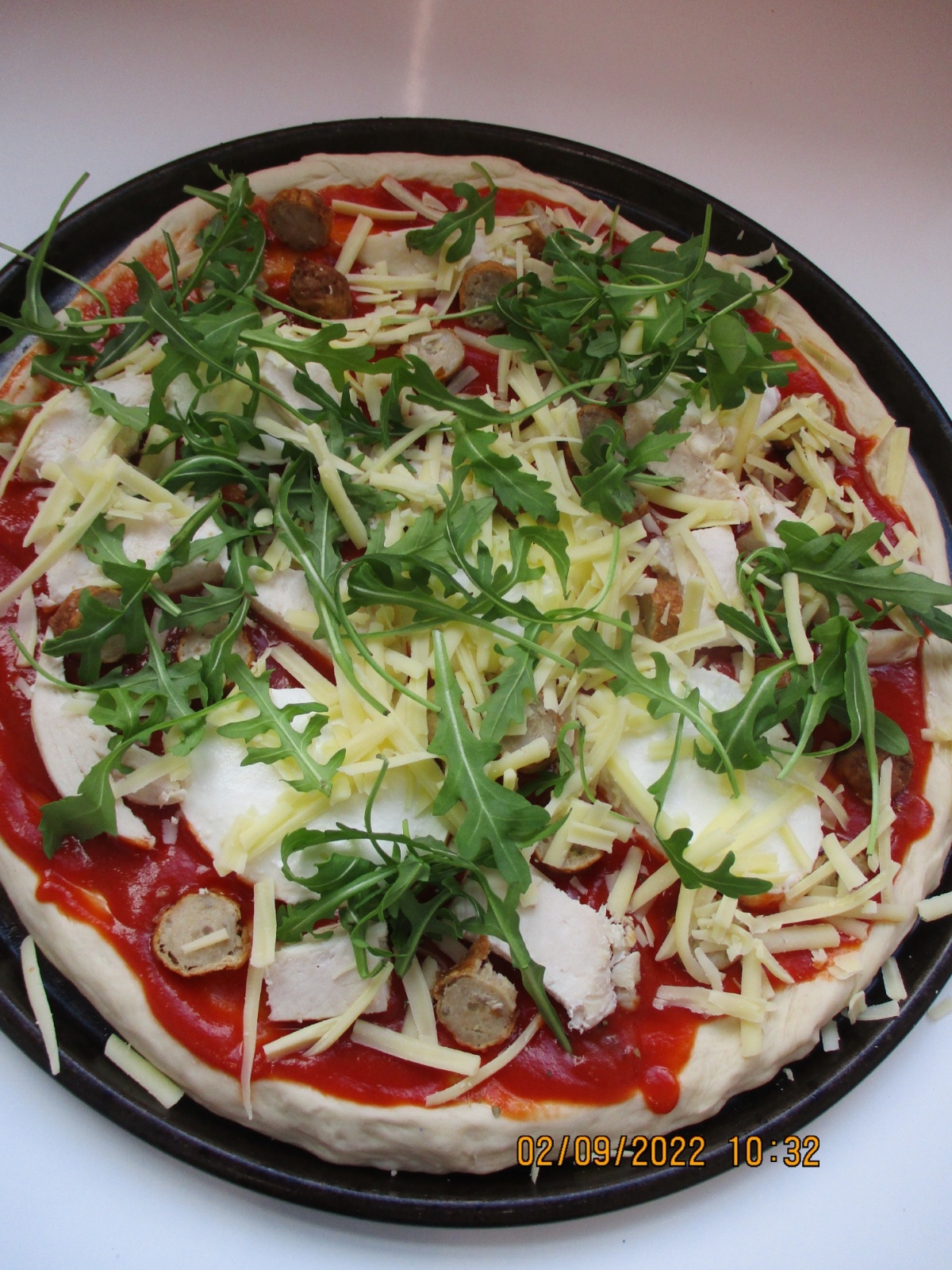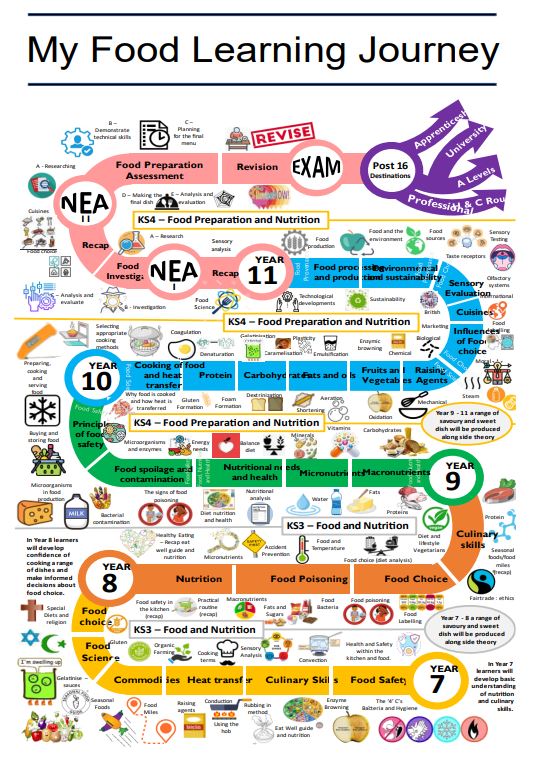Food & Nutrition
Vision
Inspiring students to explore and succeed in Food and Nutrition. Nurturing students' practical cookery skills to give them a strong understanding of nutrition.
Curriculum Aims
- Students will be taught how to cook and apply the principles of nutrition and healthy eating.
- Instil a love of cooking that will open the door to one of the great expressions of human creativity.
- Learn a crucial life skill that enables students to feed themselves and others affordably and well, now and in later life.
Curriculum Intent
KS3 and KS4
As part of their work with food, students will be taught how to cook and apply the principles of nutrition and healthy eating. Instilling a love of cooking that will encourage students to express their creativity. Learning how to cook being a crucial life skill that enables students to feed themselves and others affordably and well, now and in later life.
To develop healthy individuals
- Understand and apply the principles of nutrition and health
- Understand how nutritional needs vary with age and health conditions
- Understand the source, seasonality, and characteristics of a broad range of ingredients
- Demonstrate a repertoire of predominantly savoury dishes as part of a healthy and varied affordable diet
- Instilling a love of cooking that leads self-sufficiency and independence
- Students will learn and develop an understanding about energy, nutrients, water and fibre, diet and health and nutritional needs throughout life
- Students will consider issues around nutrition and physical, intellectual wellbeing
- Students are encouraged to use all the ingredients to make healthy nutritious predominately savoury dishes for their families in line with the principles of The Eatwell Guide
- Students are encouraged to use ingredients which may appear to be beyond shelf life but are still useable in sauces, soups, to make healthy nutritious dishes and reduce food waste in the home.
- Students at KS3 will use recipes to develop cooking skills but these can be adapted to suit personal tastes, family dietary/religious needs
- Students will experience making fruit salad, fruit crumble, scones, pizza, bread rolls, vegetable soup, meat sauce, pasta and cheese sauce, layered salad. Pretzels, pizza, multicultural dishes, pasta, meat/ fish goujons, pasties, Swiss roll
KS4
- Students at KS4 will understand how food can be prepared and cooked skilfully and safely to produce delicious and nutritious meals for different people and situations
- They will have a deeper understanding and application of the principles of nutrition and long-term health
- They will consider how to make several healthy nutritious dishes from one ingredient. For example, deboning a chicken to make several dishes (a very practical GCSE)
- Students are encouraged to use fresh, seasonal, local ingredients where possible to make healthy nutritious dishes
- Students will consider ‘Food Provenance’ and ‘Food Origins’ to include where and how foods are grown, reared, or caught and what is ‘Fairtrade’ and ‘Organic’ when purchasing foods
- Students will learn and develop an understanding about food safety, including the preparation and safe storage of food, and sound microbiological food safety principles when buying, storing, and preparing food and how to use equipment safely, health and safety at work
- Understand the economic, environmental, ethical, religious, and socio-cultural influences on food availability, production processes, and diet and health choices
- Understand how food contributes to various religious and spiritual events and celebrations. Explore a range of ingredients and processes from different culinary traditions
- Instilling a love of cooking nutritious dishes that enable students to feed themselves and others
- Students will learn and develop an understanding of individuals with specific lifestyle needs to include vegetarians: lacto-ovo, lacto, vegan, and those with religious beliefs that affect choice of diet, to include Sikh, Hindu, Muslim, and Jewish
- Students at KS4 students will be encouraged to be more creative showing their understanding of individuals with specific dietary needs through planning their recipes, demonstrating appropriate skills, and evaluating their dishes according to the needs of the target group
- Students are encouraged to have a sense of pride and self-fulfilment in their work. Student practical work will be teacher/self and peer assessed
- Students are encouraged to know how their food is transported, developing an understanding of ‘Food Miles’ and the impact food transportation has on our local and global community
- Students are encouraged to consider the environmental and economic benefit of buying locally
- Students will be encouraged to reuse food packaging when appropriate to reduce wider waste
- Students will be encouraged to think about the impact of food waste on the environment, to consider the effects on our local and global community

